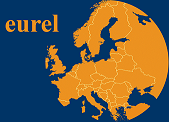Within the past two decades, the concept of religious literacy has gained currency in both scholarly and popular discourse. A trans-Atlantic, Anglophone conversation has emerged as U.S. and U.K. academics and policy-makers have called for increased public understanding of, and engagement with, religion through educational initiatives. Implicitly, and, in many instances, explicitly, proponents of religious literacy engage with theories of secularism by raising questions about the constructed category of religion and about nonreligious communities. Despite the growing body of literature on such themes, there is a dearth of scholarly analysis connecting theories of secularism to current religious literacy policy proposals. Against this backdrop, my paper asks what religious literacy could mean within the context of increasing nonreligious populations. This paper analyses the ways in which the U.S. and U.K.'s sociocultural and religious landscape may inform and impact the representation of nonreligion within religious literacy policy proposals. The following question becomes critical to any analysis of the nexus between scholarship and public policy and guides this research: is religious literacy an antidote to perceived religious decline or a symptom of it? In other words, does seeming decline necessitate an increased understanding of religions, or, conversely, does religion's robustness warrant greater understanding in the service of promoting tolerance and informed civic participation? By examining the particular context of these proposals, this paper analyses the ways in which the developing discourse around religious literacy might problematise the categories of religion and irreligion. This paper advances the case that a critical secularism studies approach exposes some of the hidden epistemological assumptions underlying the current religious literacy debate and aims to point towards new understandings of nonreligious affiliations.
|
Religious Literacy within the Context of Nonreligion: a U.S. and U.K. Policy Comparative Case Study
1 : University of Oxford
|
| Personnes connectées : 1 | Flux RSS |

|

 PDF version
PDF version